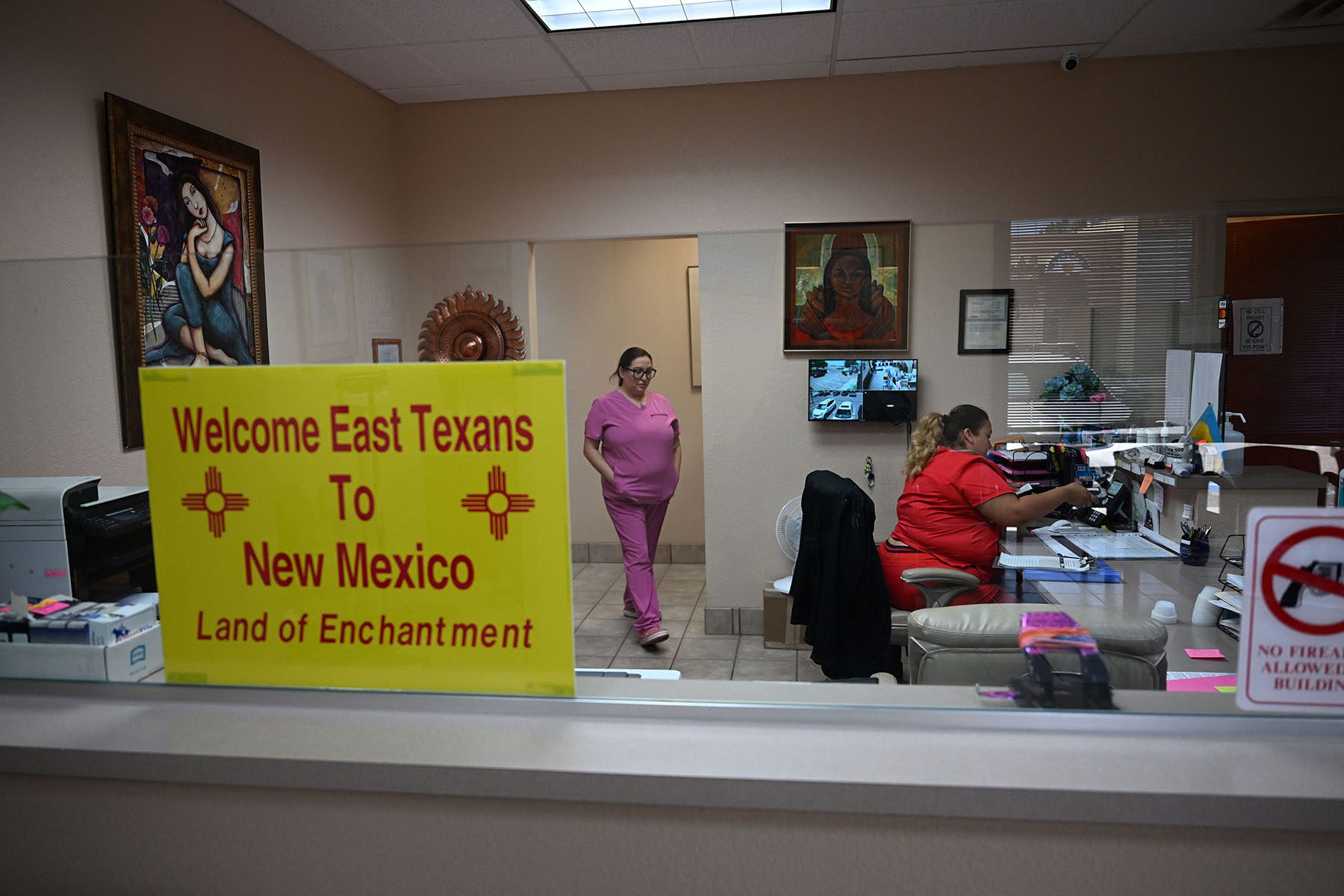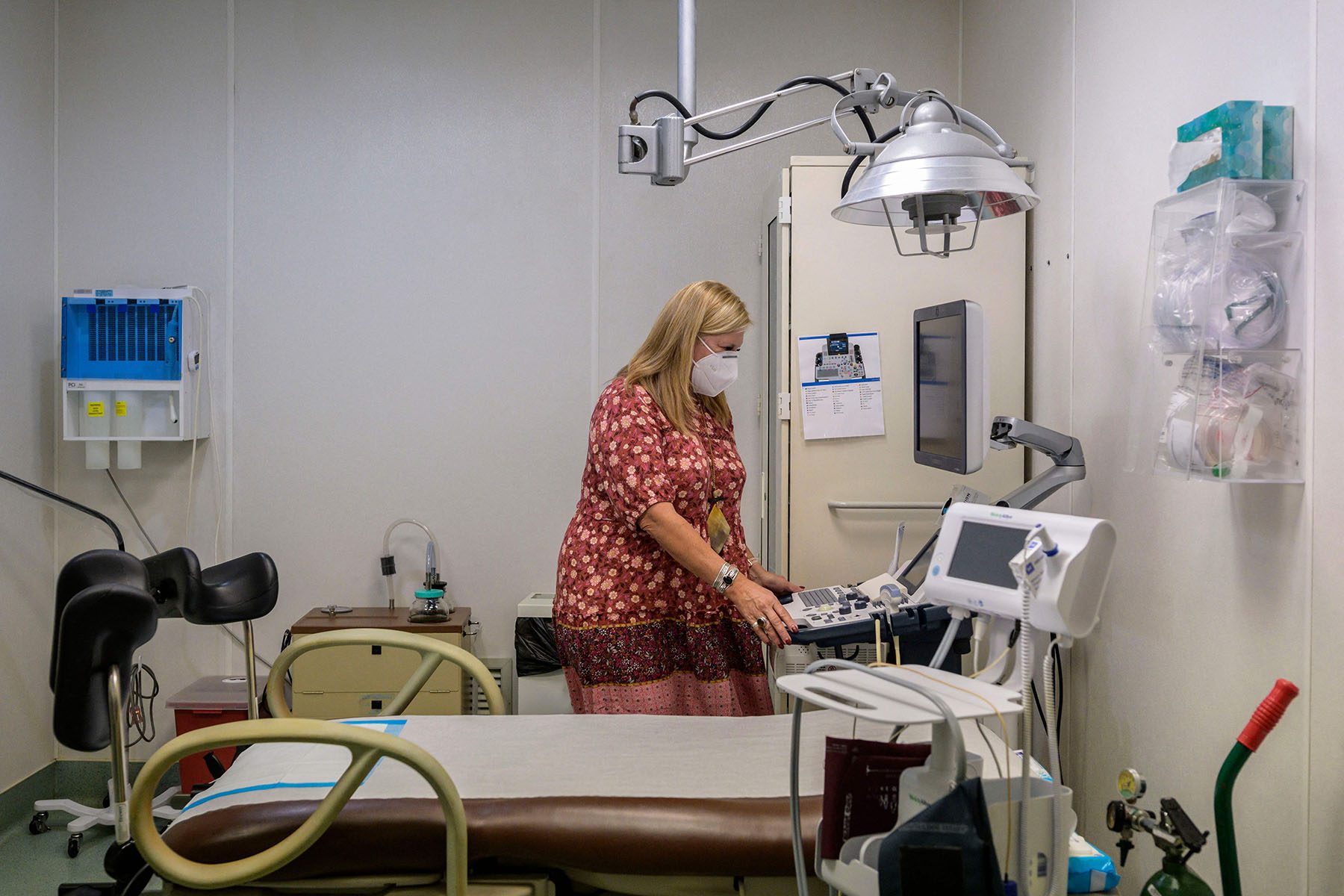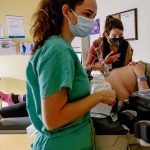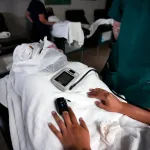Whole Woman’s Health announced plans to close its four Texas abortion clinics and open one in neighboring New Mexico.
CHOICES, based in Memphis, Tennessee, is opening a clinic in Carbondale, Illinois, the closest state expected to protect abortion rights.
Red River Women’s Clinic, which was North Dakota’s sole abortion clinic, is planning to relocate across the river to Minnesota.
Jackson Women’s Health Organization, the Mississippi clinic at the center of the Supreme Court case overturning Roe v. Wade, is moving to Las Cruces, New Mexico — just 20 minutes from the Texas border but more than 1,000 miles from Jackson.
Planned Parenthood is planning to establish a presence in Las Cruces, too, and is working to open a new clinic in Ontario, Oregon, to serve the patients expected to leave neighboring Idaho in search of abortions.
In the weeks since the Supreme Court overturned Roe and dismantled federal abortion protections, conservative states have begun enforcing bans on the procedure. Now, reproductive health providers have started leaving those states, working to open new outposts for abortion on the borders in nearby states that appear likely to maintain access.
-
More from The 19th
- When abortion clinics close, low-income people will also lose access to other reproductive care
- Pre-Roe abortion bans are cutting off access — even laws that aren’t supposed to be in effect
- The 19th Explains: Why some trigger laws still aren’t in effect after Roe v. Wade was overturned
Some have had plans in the works for months. Others are only now figuring out where and how to relocate, and what their new presence could look like.
“Any idea someone would have to expand services, we’re considering,” said Dr. Kristina Tocce, the medical director of Planned Parenthood Rocky Mountains, which serves Colorado, New Mexico and parts of Nevada.
The pattern reflects a growing reality: About a dozen states will soon be tasked with providing the majority of the nation’s abortions, per an analysis by the Guttmacher Institute. But in those states, there aren’t enough clinics to provide care for everyone in need.
Before a six-week ban took effect in Texas last fall, about 55,000 abortions were performed in-state each year. Since September 1, people who traveled out of state largely went to Oklahoma for the procedure — until that state implemented its own six-week ban in May, followed by a total abortion ban in June.
Now, both Texans and Oklahomans have limited nearby options. And “there’s no way the existing providers in New Mexico can accommodate that kind of volume of need,” said Amy Hagstrom Miller, CEO of Whole Woman’s Health.
If these clinics do manage to open, the influx could alleviate some of the strain abortion providers in New Mexico and southern Illinois are facing, their staff told The 19th. Multiple abortion providers are looking to open sites in southern Illinois — a change that “will be really helpful,” said Chelsea Souder, whose Hope Medical Clinic in Granite City, Illinois has seen its patient volume skyrocket since Roe was overturned. Wait times for abortion appointments have increased to two to three weeks from one to two days, she said.
-
Find out the latest in your state:
-
Find out the latest in your state: What abortion looks like in every state — right now
Still, the new clinics won’t be able to fully account for all the people now likely to travel for abortions. CHOICES, which began scouting for its location in November, plans to open its Illinois clinic in August. At first, it will offer only medication abortions, which are most effective within the first trimester. It will take another three to six months before they have new staff trained to do the surgical procedures required for second-trimester abortions. Jennifer Pepper, the CHOICES executive director, hopes her clinic will be able to treat 4,000 abortion patients in a year — a significant amount, but not enough to absorb all the people who may now turn to Illinois, from states potentially including Indiana, Kentucky, Tennessee, Missouri, Oklahoma and Texas.
“There will be people who have the ability and resources [to travel for an abortion] and are going to have a very hard time finding an appointment because the clinics are already at capacity,” Pepper said. “We expect to get to capacity very quickly.”
Whole Woman’s Health, meanwhile, is opening only one clinic in New Mexico — not enough to account for all the Texans who have now lost access to abortions in their home state. And the journey will be expensive and inaccessible to many. McAllen, home to what was once Texas’ southernmost clinic, is a 12-hour drive each way from the New Mexico border.

Most new clinics are opening in states where abortion access is expected to stay protected in the long term. Whole Woman’s Health is also considering opening a clinic in North Carolina — a purple state whose Democratic governor has blocked restrictions thus far — but hasn’t made any commitments just yet.
The relief won’t be immediate, either, as many of these clinics won’t open for months. Their owners still need to find a site that can serve as a medical clinic, raise money to purchase and renovate buildings, and hire staff. Some employees may come from now-shuttered clinics, but not all may be willing to relocate to a new state. And those opening clinics in smaller towns will have to arrange to fly in physicians to provide care, a potentially expensive proposition. While some clinics already have the money secured to finance such expansions, others are now trying to raise the cash.
“All of those [planned expansions] depend on the ability to maintain current staff that are experts in abortion care provision and recruit new staff,” Tocce said.
Red River Women’s Clinic, which will move from Fargo to Moorehead, Minnesota, is seeking $1 million in donations to fund its move, which will involve renovating a new facility. Whole Woman’s Health is seeking $750,000.
Hagstrom Miller has also argued that the Biden administration should offer some kind of financial support to clinics that are being forced to relocate.
But it’s not clear if the administration could in fact provide money to help clinics move, noted Rachel Rebouché, interim dean at the Temple University School of Law and an expert in abortion-related law. Such efforts could potentially run afoul of the Hyde Amendment, a budgetary provision that prohibits using federal funds to pay for abortions. The government could perhaps offer to lease land to clinics at a lower price, Rebouché said, but that discount could be construed as financial support. It’s hard to say for sure, though.
“I don’t think it’s crystal clear,” Rebouché said. “I couldn’t say with any certainty whether it would be counter to Hyde to fund a building.”
Clinics will need to hire security staff as well, and make sure they find buildings that have dedicated parking, fences and other forms of protection. Abortion clinics have long faced harassment and threats, and data from the National Abortion Federation suggests incidents have persisted and in some cases increased in recent years.
Anne Udall, CEO of Oregon-based Planned Parenthood Columbia Willamette, told reporters last month that she could not say when her organization will open a new clinic in Ontario, Oregon. But ensuring it has adequate security is a key priority, she said.
Meanwhile, some clinicians are opening new clinics altogether in states where they anticipate more people may travel.
Morgan Nuzzo, a nurse midwife, and Dr. Diane Horvath are aiming to open their new clinic, Partners in Abortion Care, in College Park, Maryland, sometime in September. The two health care providers worked together at two other clinics in the Washington, D.C., area, and decided late last year they would open their own facility specializing in abortions performed later in pregnancy.
They expect that at first, the clinic will serve 15 patients a week, including many from places where abortion access has been restricted, such as states to Maryland’s south, or from neighboring West Virginia. They would like the clinic to become a training facility for other health care providers with a desire to provide all-trimester abortion care.
“We know from lots of research that when [abortion] bans are in place, people are pushed further and further into pregnancy because they’re trying to navigate all of the restrictions and bans and trying to find travel, childcare and things like that,” Horvath said. “So I think that the need for later abortion is not going to go away, it’s going to increase.”
-Amanda Becker contributed to this report









